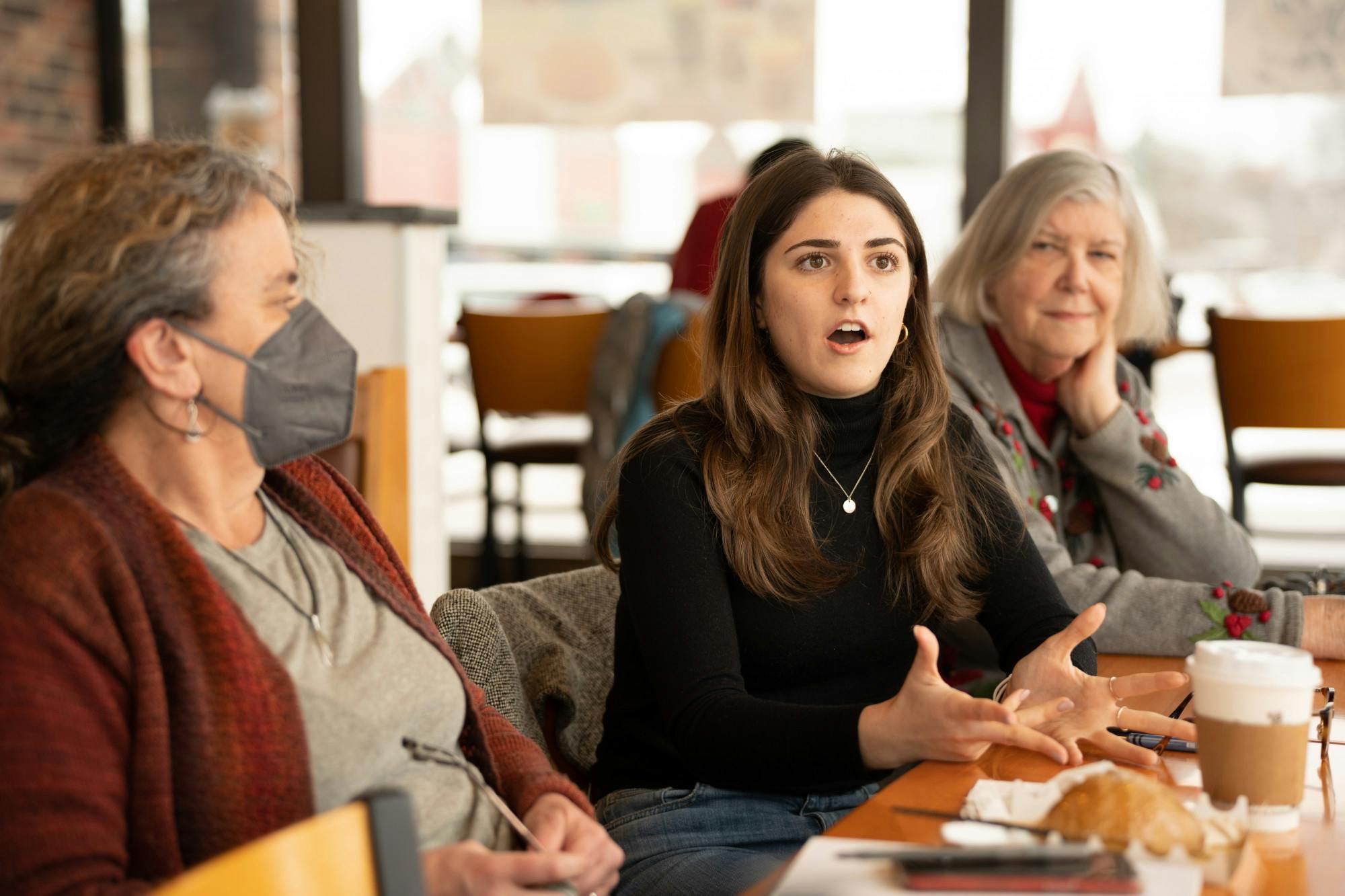The East Lansing Human Rights Commission, or HRC, hosted a conversation session on Sunday, Jan. 29 to discuss strengthening protections for the LGBTQIA+ community in the area.
The meeting, which took place at PappaRoti, centered around the expansion of the Elliott-Larsen Civil Rights Act. The act prohibits discrimination in Michigan based on religion, race, color, national origin, age, sex, weight, familial status, marital status, employment, housing or education. A ruling by the Michigan Supreme Court in the summer of 2022 expanded the scope of the law to include protections for sexuality and gender identity.
HRC member Julia Walters said the HRC's goal is to see what this expansion means for the City of East Lansing and what steps need to be taken to ensure these protections are a reality rather than a piece of legislation.
“We kind of had a conversation with the mayor about how do we take things from more symbolic action into more generative action," Walters said. "Whether that's trying to see how we can provide contraceptives, how maybe the city could potentially work with programs and other things to make it so that East Lansing has policies and actions that reflect inclusivity.”
The conversation focused on the HRC’s goal of connecting more with students, both in college and high school, to make them more aware of the protections they are entitled to.
HRC member Karen Hoene said because students make up close to half of the community's population, it is critical they know they are protected and have the HRC by their side.
“For us not to be partnering with universities is just ridiculous. We should be partnering with the university every possible chance," Hoene said.
University Student Commission member Hannah McDermott took part in the conversation to help plan a potential partnership between the HRC and the student commission on campus.
Discussions centered around how protected attendees thought LGBTQIA+ students felt on campus. McDermott, Walters and Hoene decided a partnership between the two commissions would allow for the HRC to measure this, while also allowing them to spread more education about the Elliott-Larsen Act and what protections are available to LGBTQIA+ MSU students.
The HRC is also looking to form more connections with local high schools to provide education resources to younger students.
“We’re in a very good place right now to make progress and we have to take advantage of it because you never know when the pendulum might swing in the other direction,” Hoene said. “East Lansing is an interesting community and it’s a very empowered community, which is a wonderful thing.”
Although the Supreme Court ruled that the Elliott-Larsen Act also protects against discrimination due to sexual orientation, there are two bills headed to the Michigan legislature to codify that expansion into law. These include Senate Bill four and House Bill 4003, which would enshrine protections against discrimination for LGBTQIA+ individuals.
The HRC said they aim to help this legislation pass. Attendees will write letters to committee chairs overseeing the bill to convince them to let it through.
The HRC plans to host similar events in the future and hopes to increase the amount of people that attend these events. The HRC meets every second Monday of the month. Their next meeting will occur on Feb. 13 at 7 p.m. at the 54-B District Court.
Support student media!
Please consider donating to The State News and help fund the future of journalism.
Discussion
Share and discuss “East Lansing Human Rights Commission discusses strengthening protections for LGBTQIA+ community” on social media.







